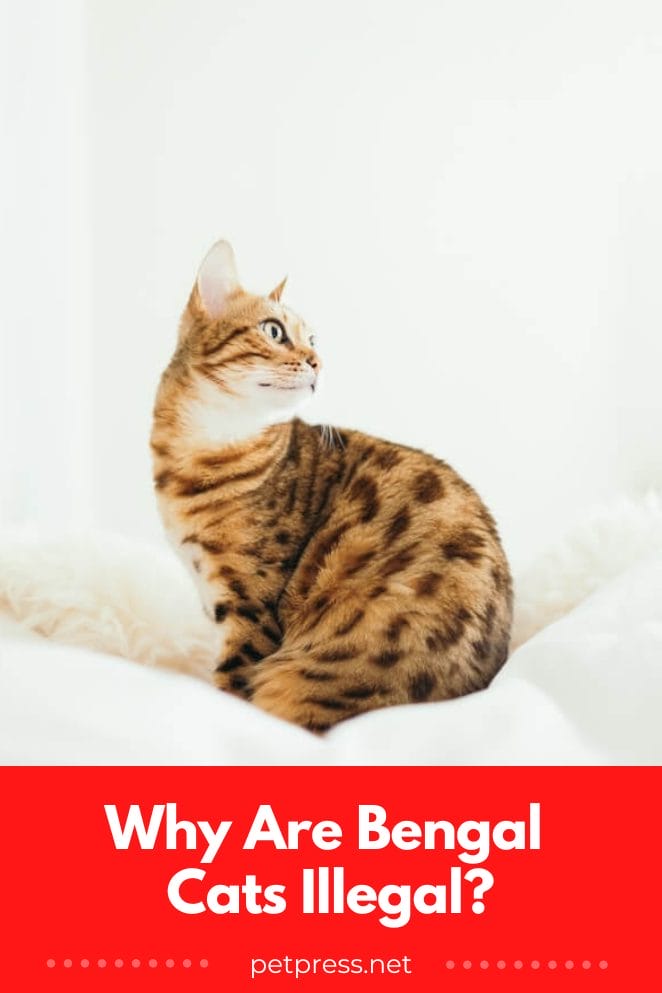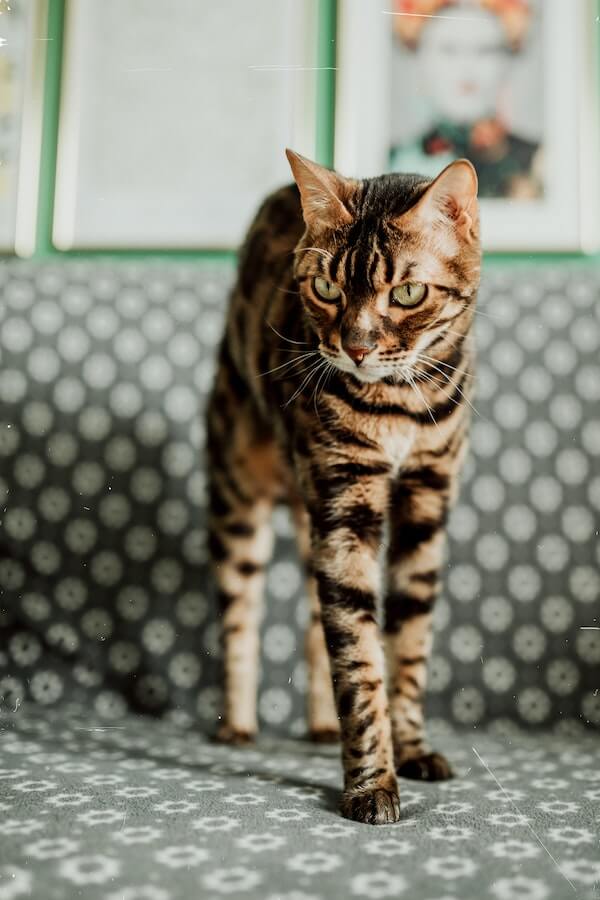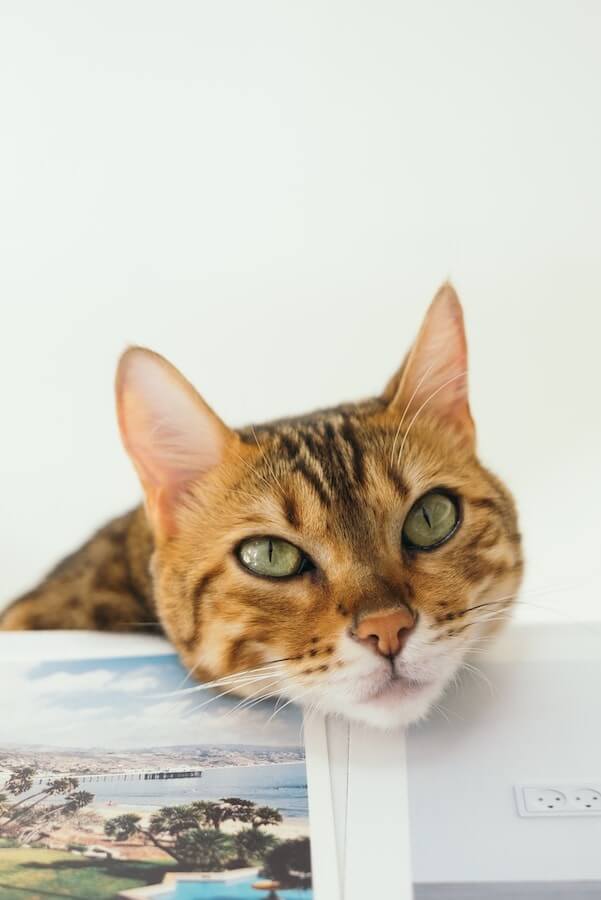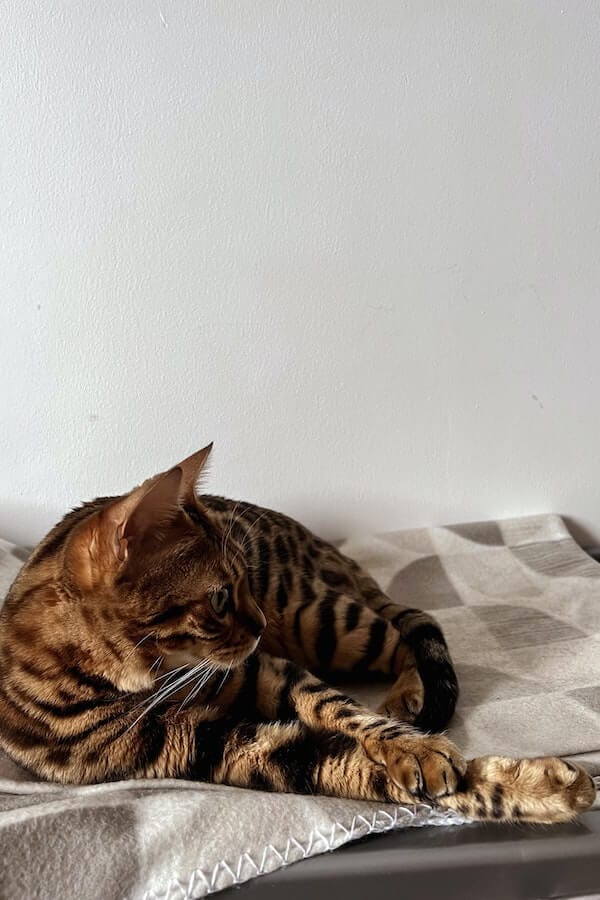
The Bengal cat is one of the most distinctive, beautiful, and alluring cats around. Yet, why are Bengal cats illegal in some places?
If this has left you scratching your head wondering why these gorgeous felines are outlawed, then read on.
From their wild origins to various concerns about safety and welfare, there’s a lot to explore.
It’s a fascinating story that will leave you with plenty of food for thought.
Origin of the Bengal Cat Breed
The Bengal breed originated as a hybrid between domestic cats and wild Asian Leopard Cats (ALC). This mix of wild and domestic has created an animal with striking physical features that are sure to draw attention!
Bengals have large, round eyes, long bodies, and short legs. They have soft printed fur that comes in a variety of colors ranging from shades of brown to orange or even silver.
They are a hypoallergic cat breed perfect for people who do not wish to find furballs everywhere in the house.
Bengal cats are active animals who enjoy playing interactive games like fetch or laser pointer tag.
These cats are good with dogs so make good companions for people with pets. They also exhibit intelligence when it comes to manipulating their environment like opening cupboards, etc.
While some Bengals can be quite vocal, they are generally loving and affectionate cats. They enjoy snuggling up with their owners or playing fetch together. They have an independent nature, yet will still come when called and show appreciation for the affection of their humans.
Even though Bengals have been domesticated for many years now, they remain illegal in certain areas due to potential safety concerns.
So if you’re interested in getting a Bengal cat as your pet, be sure to do your research first and make sure you understand all the laws surrounding these exotic creatures before taking one home.

Why are Bengal cats illegal?
If you’re the type of person who loves cats, then you may have heard of Bengal cats.
These cats are well-known for their beautiful coat pattern, combining stripes and spots in a stunningly bold way. However, Bengal cats are illegal in some states and countries due to their wild ancestry.
The reason why Bengal cats are illegal is because they are a hybrid. They were originally created by crossing domestic housecats with Asian leopard cats (ALCs).
ALCs are part of the small wild cat family that includes tigers, lions, leopards, and jaguars.
Since these felines have some of their wild relatives’ behaviors still intact after generations of breeding, people worry about them being a danger to humans or domesticated animals.
In some states, it’s illegal to keep a Bengal cat as a pet because they are considered an exotic animal.
Additionally, Bengals tend to be very active animals. They may not always fit into a small home or apartment easily.
If you’re looking for an exotic breed of cats, make sure you check the laws in your state first.
Although these cats are beautiful creatures, their wild origins can present challenges for owners who aren’t prepared to deal with them properly.

Regulations on Bengal Cat Ownership Across Different Regions
Bengal cat ownership is subject to various restrictions in different parts of the world.
In the United States, Alaska requires the cat to be at least four generations removed from a wild ancestor, and a permit with a registered pedigree must show the past four generations. California and Utah have no restrictions, while Connecticut, Hawaii, Indiana, Massachusetts, New York City, and Seattle prohibit Bengal cat ownership.
Other states require permits or licenses, such as Delaware and Georgia. Colorado mandates that the previous five generations must have lived in captivity, and Iowa stipulates that the cat must be a fourth-generation domestic cat.
When we talk about Canada, owning a Bengal cat is legal in British Columbia, Manitoba, New Brunswick, Nova Scotia, Ontario, Quebec, and Saskatchewan. Alberta requires the cat should be a fourth-generation domestic cat and it should be registered with the ICA.
In Europe, the regulations on Bengal cat ownership vary between countries and cities within each country. Most countries allow ownership, but many require the cat to be several generations removed from the Asian Leopard Cat, and some demand registration of ownership.

Bottom Line
In conclusion, owning a Bengal cat can be a wonderful experience, but it’s essential to ensure that you can legally own one in your area.
Conducting research before buying or adopting a Bengal is crucial to avoid the heartache of surrendering your pet. Start by checking your state laws and contacting the relevant authorities if necessary.
Additionally, find out your county and municipal regulations as they can ban certain animals even if the state permits them. Although researching laws can seem like a lot of work, it’s crucial to know your laws ahead of time to avoid any legal issues.


GIPHY App Key not set. Please check settings